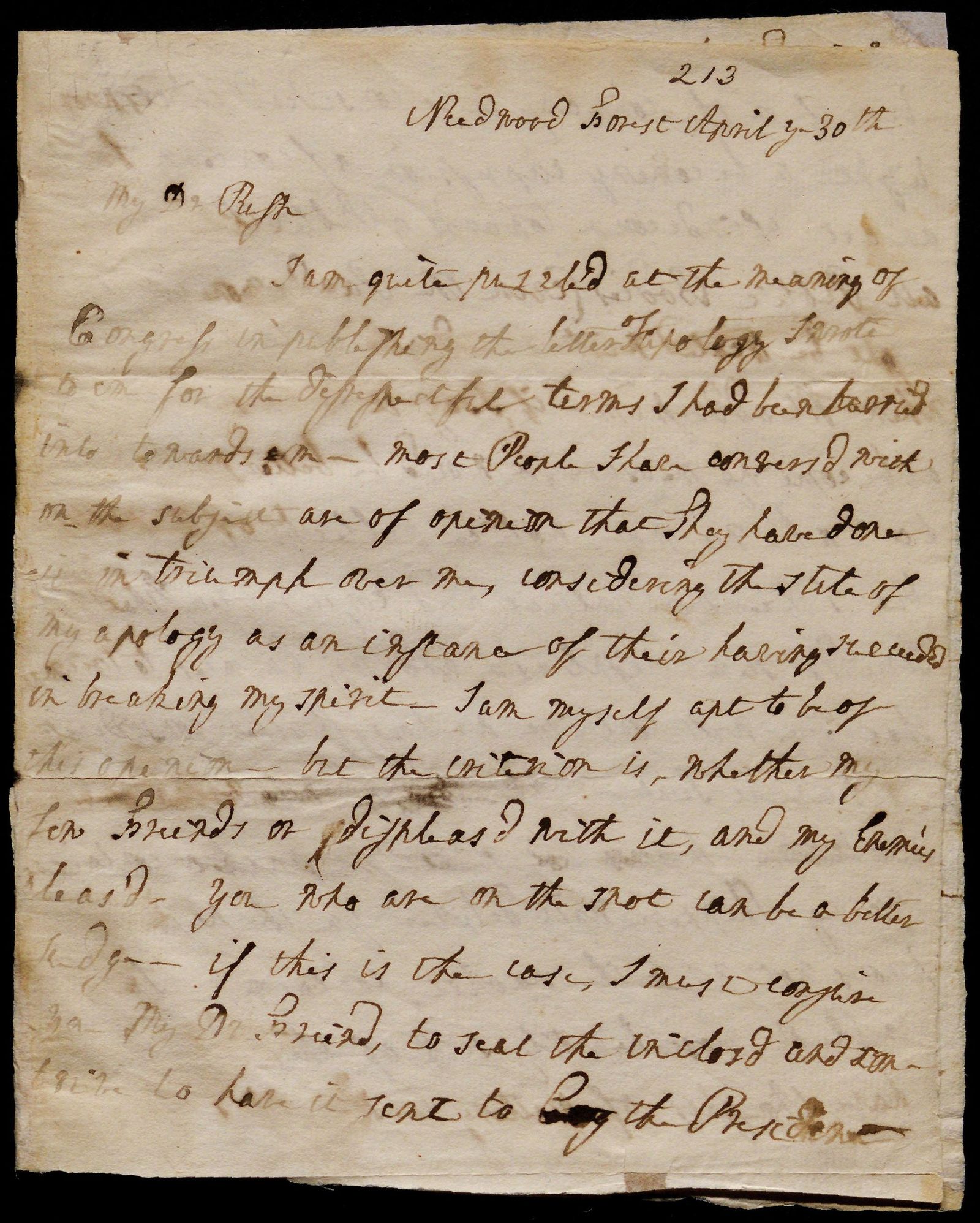
A larger version of this object is available to teachers and students for free. Others can subscribe for $25/year.
Larger images are also available to schools and libraries via subscription to American History, 1493-1943. Check to see if your school or library already has a subscription or click here for more information.
- GLC#
- GLC04700
- Type
- Letters
- Date
- April 30, 1780
- Author/Creator
- Lee, Charles, 1731-1782
- Title
- to Benjamin Rush
- Place Written
- Redwood Forest, Virginia
- Pagination
- 4 p. : Height: 20.1 cm, Width: 16.6 cm
- Primary time period
- American Revolution, 1763-1783
- Sub-Era
- The War for Independence
Written by disgraced General Charles Lee to Rush, the former Pennsylvania Continental Congressman, as a doctor in private practice. Is upset that Congress published his letter of apology. Claims that "Most people I have conversd with on the subject are of opinion that they have done al in triumph over me, considering the state of my apology as an instance of their having succeeded in breaking my spirit." Wants to know how his "few" friends and enemies in Philadelphia are interpreting the letter. If it is detrimental to his character he wants the enclosed letter to be published (letter not included here). Says he is "most heartily sick of this Country, and have thoughts of quitting it soon, if I can settle my affairs in such a manner as to set me at liberty." Says he thinks he can be safer under a monarch, and mentions the Emperor of Tuscany or Hungary, but say she will not raise a sword against America. Letter appears to have water damage has fading, although it is still legible.
Citation Guidelines for Online Resources
- Copyright Notice
- The copyright law of the United States (title 17, United States Code) governs the making of photocopies or other reproductions of copyrighted material. Under certain conditions specified in the law, libraries and archives are authorized to furnish a photocopy or other reproduction. One of these specific conditions is that the photocopy or reproduction is not to be “used for any purpose other than private study, scholarship, or research.” If a user makes a request for, or later uses, a photocopy or reproduction for purposes in excess of “fair use,” that user may be liable for copyright infringement. This institution reserves the right to refuse to accept a copying order if, in its judgment, fulfillment of the order would involve violation of copyright law.